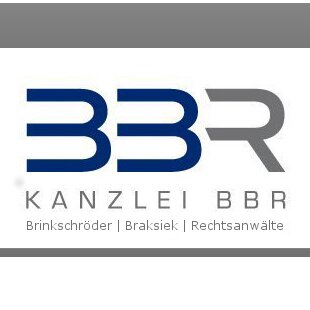Best Landlord & Tenant Lawyers in Osnabrück
Share your needs with us, get contacted by law firms.
Free. Takes 2 min.
Free Guide to Hiring a Real Estate Lawyer
List of the best lawyers in Osnabrück, Germany
About Landlord & Tenant Law in Osnabrück, Germany
Landlord and tenant law in Osnabrück is primarily governed by the German Civil Code (Bürgerliches Gesetzbuch or BGB). This set of laws regulates the relationship between landlords and tenants, from the signing of a rental contract through to the end of the tenancy. Osnabrück, located in Lower Saxony, follows federal German rental law but there are also specific local considerations, such as rent control policies and municipal regulations. The law aims to balance the protection of tenants' living standards and rights with the legitimate interests of property owners.
Why You May Need a Lawyer
There are several common situations where individuals, both landlords and tenants, may require legal advice or representation in Osnabrück:
- Disputes over rent increases or rent reduction claims
- Problems with security deposits, such as delayed return or unjust deductions
- Eviction proceedings, whether for non-payment of rent, lease violations, or other reasons
- Unclear or contested contract terms
- Issues relating to repairs, maintenance obligations, and defect notifications
- Termination notice disputes or conflicts during move-out
- Protection against unfair or illegal landlord practices
- Disagreements about utility costs and annual settlement statements
- Questions regarding subletting
- Need for advice during the negotiation or drafting of a lease agreement
Local Laws Overview
Osnabrück follows national German law regarding landlord and tenant relationships, but residents should be aware of certain local aspects:
- Rental Contracts: Lease agreements must comply with German contract law. Written contracts are strongly recommended, with clear terms about rent, deposit, duration, utility charges, and termination.
- Deposit (Kaution): Landlords can request up to three months' cold rent as a security deposit. This must be kept in a separate bank account and returned with interest after the tenancy ends, provided there are no legitimate claims.
- Rent Increases: Rent can only be increased under strict legal conditions. There are rules about timing, notification, and permissible limits (such as the Mietpreisbremse or rent brake in certain areas).
- Termination Notices: Both tenants and landlords must follow statutory notice periods. Exceptions exist for extraordinary termination (e.g., non-payment or serious breaches).
- Repairs and Maintenance: Landlords are responsible for maintaining the property in a habitable state. Tenants must report defects promptly and may be liable for minor repairs depending on the contract.
- Utility Costs (Nebenkosten): These must be listed clearly in the lease. Annual statements are required, and tenants have the right to review documentation for the costs charged.
- Municipal Regulations: The City of Osnabrück may have additional rules regarding housing standards, noise, short-term rentals, and renovation permits.
Frequently Asked Questions
What are my rights if the landlord increases the rent?
You have the right to receive written notice outlining the reason and amount of the increase. Rent increases are only allowed under strict conditions, and you usually have the opportunity to object or seek legal advice if you believe the increase is unjustified.
How much can a landlord charge for a security deposit?
The maximum deposit a landlord can require is the equivalent of three months' base rent (excluding utilities). This must be held in a separate account and returned with interest when you move out unless there are valid claims for damages or unpaid rent.
What should I do if I find defects in the apartment?
Report any defects to your landlord in writing as soon as possible. The landlord is usually obligated to fix issues that affect the habitability of the property. If repairs are delayed, you may be entitled to a rent reduction.
How much notice must I give to terminate my rental contract?
The standard notice period for tenants is three months. Landlords may also give notice but are subject to longer periods depending on the length of the tenancy. Shorter notice may apply in cases of serious breaches.
Can my landlord evict me immediately?
Immediate eviction is rare and only possible under serious circumstances, such as persistent non-payment or severe contract breaches. Usually, eviction requires formal notice and, if contested, a court order.
Is subletting allowed in Osnabrück?
Subletting generally requires the landlord's consent. If you sublet without permission, you risk termination of your lease. However, landlords should not unreasonably withhold consent under many circumstances.
What are my rights regarding utility costs?
Utility costs must be transparently listed and accounted for annually. You have the right to review supporting documents if you dispute the charges.
Can my landlord enter the apartment without permission?
No, landlords may only enter your apartment with your consent or in emergencies. They must give notice for inspections, repairs, or viewings.
What can I do if my deposit is not returned?
If your landlord withholds the deposit without justification, you can demand its return in writing. If this is unsuccessful, you may seek mediation or take legal action.
Where can I get help with landlord and tenant disputes in Osnabrück?
You can seek advice from tenant associations, local consumer protection agencies, or a specialized lawyer. There are also legal aid options for those unable to afford private legal counsel.
Additional Resources
- City of Osnabrück Housing Office (Amt für Wohnungswesen) - For municipal housing issues and advice
- Mieterverein Osnabrück eV (Tenant Association) - For tenant advocacy, legal advice, and support
- Haus & Grund Osnabrück - For support and information for property owners and landlords
- Consumer Center Lower Saxony (Verbraucherzentrale Niedersachsen) - For general legal advice on renting
- German Bar Association (Deutscher Anwaltverein) - For finding qualified lawyers specializing in landlord and tenant law
Next Steps
If you are facing a landlord and tenant issue in Osnabrück, it is important to gather all relevant documents, including your rental agreement, correspondence, and receipts. Define your problem and desired outcome clearly. Contact a local tenant association or a specialized lawyer to discuss your case. Many organizations offer initial consultations, and legal aid may be available if you meet income criteria. Never sign documents or agree to settlements without fully understanding their implications. Acting early can help you protect your rights and find an effective solution.
Lawzana helps you find the best lawyers and law firms in Osnabrück through a curated and pre-screened list of qualified legal professionals. Our platform offers rankings and detailed profiles of attorneys and law firms, allowing you to compare based on practice areas, including Landlord & Tenant, experience, and client feedback.
Each profile includes a description of the firm's areas of practice, client reviews, team members and partners, year of establishment, spoken languages, office locations, contact information, social media presence, and any published articles or resources. Most firms on our platform speak English and are experienced in both local and international legal matters.
Get a quote from top-rated law firms in Osnabrück, Germany — quickly, securely, and without unnecessary hassle.
Disclaimer:
The information provided on this page is for general informational purposes only and does not constitute legal advice. While we strive to ensure the accuracy and relevance of the content, legal information may change over time, and interpretations of the law can vary. You should always consult with a qualified legal professional for advice specific to your situation.
We disclaim all liability for actions taken or not taken based on the content of this page. If you believe any information is incorrect or outdated, please contact us, and we will review and update it where appropriate.









